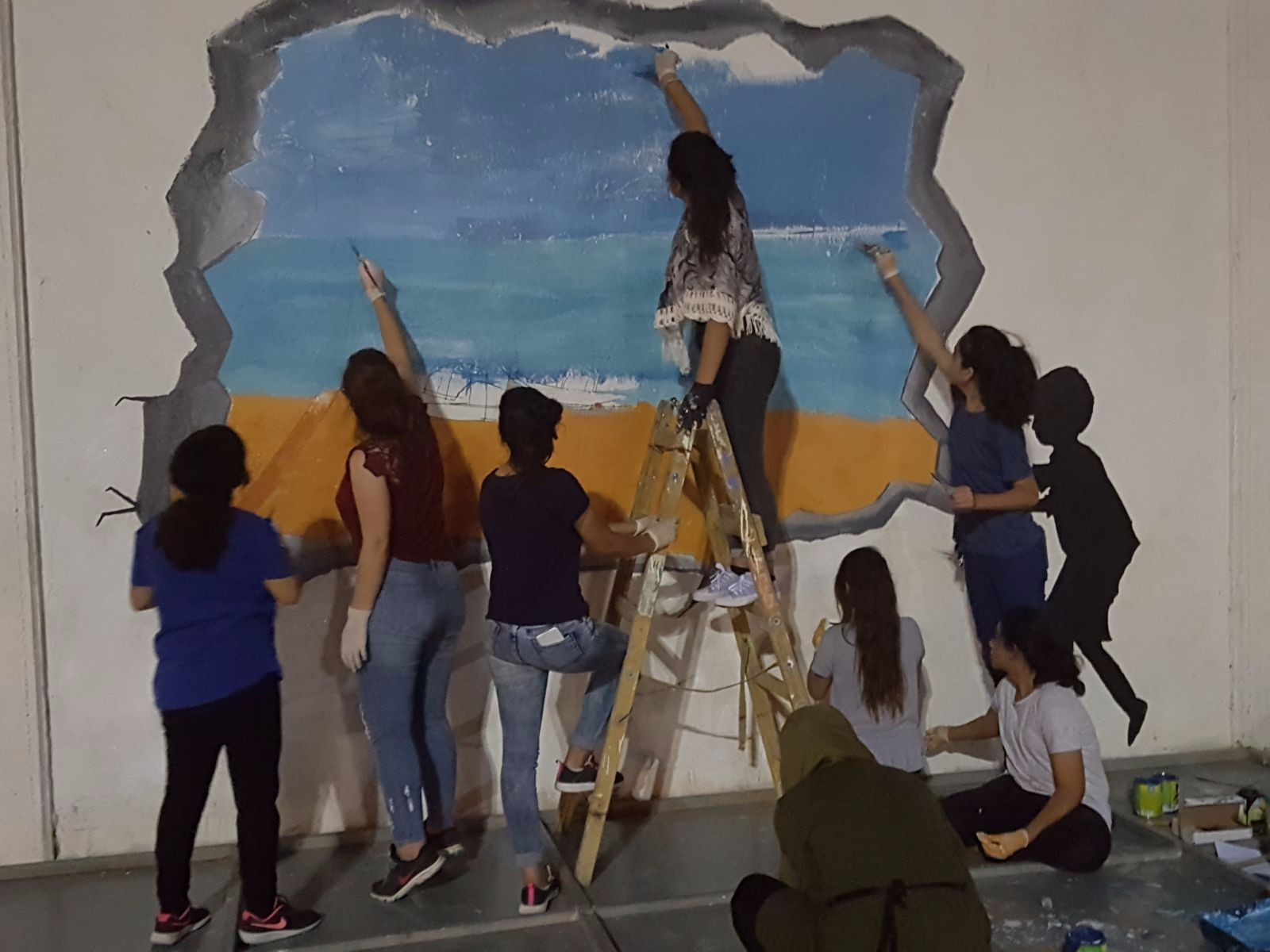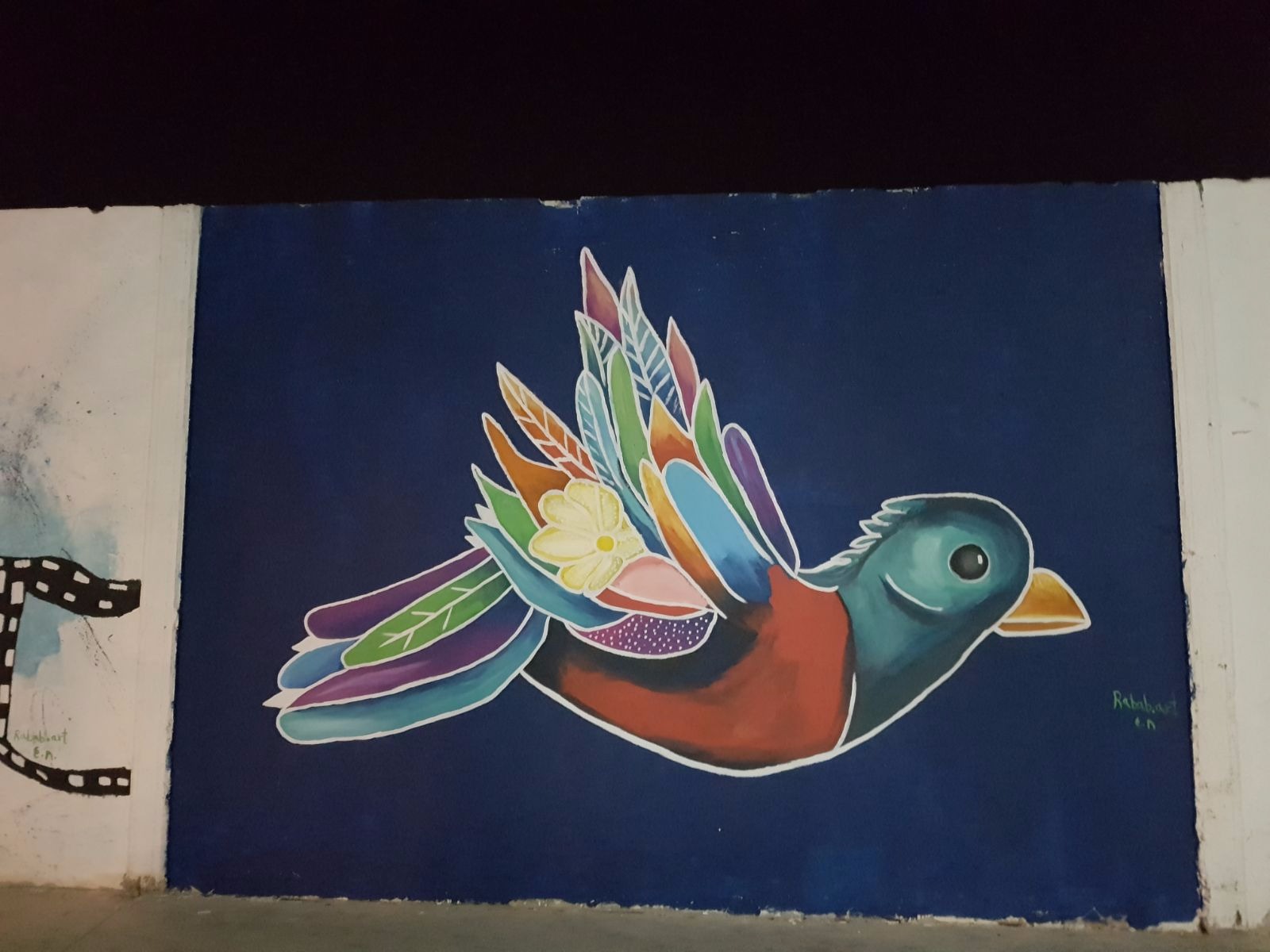Tahdiyat / Challenges / Etgarim
Under the framework of the program entitled “Challenges to the advancement of a nonformal educational system in Arab society” and implementation of the decision (No. 922) adopted by the government on December 30, 2015, the Social Education, Community and Youth Division of the Ministry of Education seeks to fund Arab and Bedouin local councils for the creation and implementation of a municipal master plan to develop, advance, strengthen and institutionalize a nonformal education system under the local authority in accordance with the needs of residents: children, young people and the community at large.
Given the success of the Challenges program at Givat Haviva, which engaged hundreds of young people from Arab communities during the summer, we decided to interview Anhar Masarwa, director of the arts program.
Anhar, tell me a little about the Challenges program.
The Challenges program is designed for Arab society. Funding is from the Ministry of Education and Culture. The project is national in scope, through local community centers and village youth departments.
At this point, Givat Haviva’s Challenges program is operating six projects: Yihyeh B’seder for vocational Hebrew, young leadership in regional mediation in Arab society, young women’s leadership for change, the Behind the Lens project, a film-making project, and a street art project.
What is your role in the program?
I am the coordinator for the art and the young leadership projects.
What sort of outputs do the children produce?
Mainly street art, at present.
 Who are the instructors?
Who are the instructors?
Most of our instructors are artists with various specialties. In the street art project, the instructors teach the children first how to paint on paper, and after that they move on to painting on placards, and then to making art outdoor murals on walls. There is a social message behind every painting. The children choose, together with the instructors, the message they want to convey and how they want to express it in their painting.
How do you recruit the instructors?
Each of the instructors is someone I know personally. Two are women who have worked previously at the Givat Haviva Art Center.
What in your opinion is special about the Challenges program?
What makes Challenges special is the professionalism, the perseverance, the innovation, and the effectiveness. Within a very short time we have managed to implement all our planned programs with great success.
The children in the Challenges program receive a secure platform for free expression and they use it in an optimal way. They are able to think outside the box and to express that very creatively. They learn and acquire tools for various modes of expression, using art rather than aggression.
These projects are very important and make a tremendous contribution to Arab society. The Challenges program offered something for all our children and youth who have no other healthy way of keeping busy during their summer holiday – who otherwise might well be bored and wandering around the streets, too often a path to aggressive behavior, violence, drug use, and criminal activity. We provide an alternative so that they don’t fall into these traps; we help them grow into creative adults who have developed their faculty for independent thought.
What would you recommend for the program’s future?
 My aspiration is that every local council have at least three or four photography projects, Behind the Lens, film-making, and young women’s leadership. These are very important projects for empowering young people in Arab society. With the help of our dedicated professional team, we have been able to shepherd the children and young people toward the highest level of achievement. We have been able, through what they create and through the practice of expressing their chosen social messages with art, to nurture inner change that manifests in a more positive environment for them, for their families, and for the entire society.
My aspiration is that every local council have at least three or four photography projects, Behind the Lens, film-making, and young women’s leadership. These are very important projects for empowering young people in Arab society. With the help of our dedicated professional team, we have been able to shepherd the children and young people toward the highest level of achievement. We have been able, through what they create and through the practice of expressing their chosen social messages with art, to nurture inner change that manifests in a more positive environment for them, for their families, and for the entire society.
I also recommend that the various local councils exploit the budgets that exist for them today from the Ministry of Culture. I want to come to Arab society and tell people that art is an amazing and very important tool all over the world, so that they will view art as a form of cultural expression that reflects the essence of humanity. Art is a way of mediating between different cultures. It is crucially important to teach our children to be creative and to develop a relationship with art. It’s something that makes them better educated and better thinkers who are more involved in their community and contribute to it. This is how we can build the future for our children here.
Interviewed by: Sivan Avner, Givat Haviva Art Center